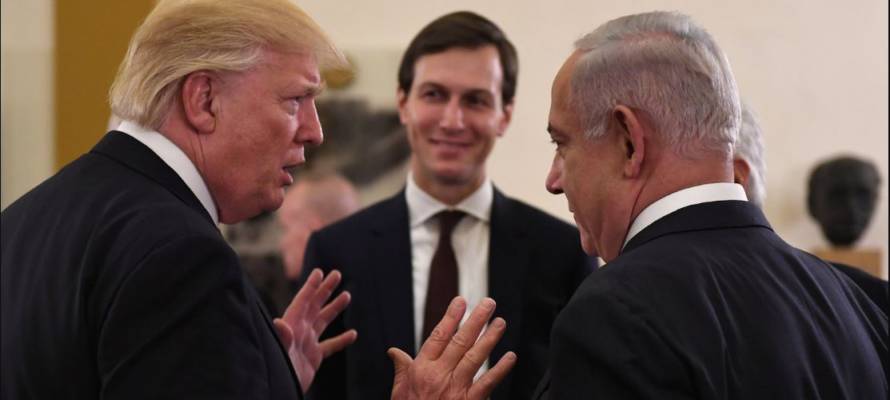The PA foreign minister asserted that the “united Arab position” was that “there will be no peace without the establishment of a Palestinian state within the ’67 borders,” while his Jordanian counterpart said the Americans must understand that “we are not coming up with a new proposal.”
By Ben Cohen/The Algemeiner
As a high-level negotiating team headed by US President Donald Trump’s senior adviser Jared Kushner heads to the Middle East this week, Palestinian and Arab leaders have underlined that they will not consider any solutions that deviate from the 2002 Saudi-backed peace initiative — which calls for the establishment of a Palestinian state alongside Israel, with eastern Jerusalem as its capital.
Kushner will arrive in the region on Thursday accompanied by Jason Greenblatt, the administration’s special envoy for international negotiations, and Deputy National Security Adviser Dina Powell. The team will meet with Israeli Prime Minister Benjamin Netanyahu in Jerusalem and with Palestinian Authority President Mahmoud Abbas in Ramallah, before heading to further meetings in Saudi Arabia, the United Arab Emirates, Qatar, Jordan and Egypt.
In a joint declaration in advance of the American visit, the Palestinian, Egyptian and Jordanian foreign ministers, meeting in Cairo, welcomed US involvement in advancing the peace process, but implicitly warned against any flirtation with political solutions that do not involve a separate Palestinian state. Palestinian Authority Foreign Minister Riyad al-Maliki asserted that the “united Arab position” was that “there will be no peace without the establishment of a Palestinian state within the ’67 borders,” while his Jordanian counterpart, Ayman al-Safadi, said the Americans needed to understand that “we are not coming up with a new proposal.”
Palestinians Disillusioned with Kushner
Behind the scenes, however, Palestinian leaders are said to be increasingly disillusioned with Kushner and his team. In part, this is because of the Trump administration’s tougher stance on the PA’s policy of paying monthly salaries to convicted terrorists and their families — a practice widely regarded as incentivizing terror, at an annual cost of $300 million. After his last meeting with Kushner on June 23, Abbas was reported to have been furious at an American demand that the PA cut the payments to the families of 600 Palestinian terrorists serving life imprisonment sentences in Israeli prisons. Should the forthcoming session of Congress pass the Taylor Force Act — which would severely restrict US aid to the PA until the State Department certifies that it is no longer inciting and funding terrorist violence – the PA’s relationship with Kushner and his team is likely to be further strained.
“If we don’t succeed this time, all the options are Armaggedonist,” the PLO’s Washington representative, Husam Zomlot, told the Abu Dhabi newspaper The National last week.
“For the last three months we have done the talking, the microphone was with us, we explained in detail where we see things going, and now it’s time to listen,” Zomlot said. He added that the PA wants to now “hear the Trump administration publicly endorse a vision for a solution.”
Adamant that the “only final solution is the two states based on 1967 borders,” Zomlot demanded “crystal clarity from the US before we start the journey, on where we are going and how we will get there.”
But if the official line from the White House is anything to go by, such clarity will come ultimately from the negotiating parties themselves. On Monday, in advance of the Kushner team’s visit, a White House official stated: “While the regional talks will play an important role, the president reaffirms that peace between Israelis and Palestinians can only be negotiated directly between the two parties and that the United States will continue working closely with the parties to make progress towards that goal.”
